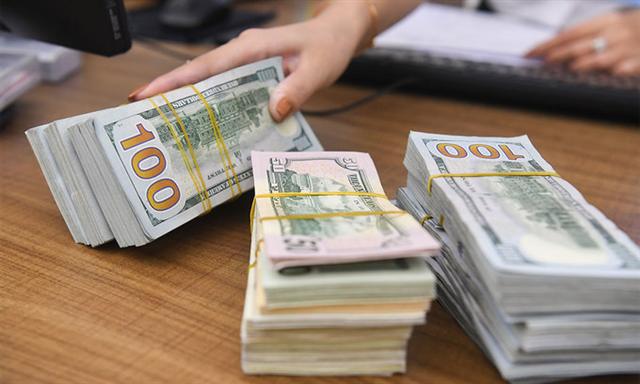Dollar could reverse fall against dong next year: HSBC
Dollar could reverse fall against dong next year: HSBC
The dollar has been dropping against the dong in recent months but could bounce back higher next year with slower FDI inflows and an expected current account deficit.
An employee counts U.S. banknotes at a bank in Hanoi. Photo by VnExpress/Giang Huy
|
The greenback dropped by VND450, or 1.94 percent, from last November to VND22,750 earlier this month, the lowest in years, according to a note by lender HSBC, which says it is set to fall even lower to VND22,525 by the end of this year, going against the trend of recent years.
The State Bank of Vietnam (SBV) had said July said it would commit to regulating the exchange rate in a flexible manner and to address the concerns of the U.S. Treasury Department, said Ngo Dang Khoa, HSBC Vietnam country head of markets and securities services.
Under the agreement, Vietnam committed not to devalue its currency for trade advantage and to make its monetary and exchange rate policies more transparent.
The HSBC forecasts that the dollar could bounce back to VND23,000 next year because Vietnam’s current account surplus could change into a deficit due to falling revenues from some sectors like tourism as a result of the Covid-19 pandemic.
A current account deficit occurs when a country spends more on imports than it receives on exports.
Vietnam’s current account surplus in the first quarter was $0.4 billion, down from the $3 billion quarterly average in the 2019-2020 period.
Another issue is slower foreign direct investment inflows.
Average monthly FDI inflow dropped from $1.8 billion in April-December last year to $1.6 billion in April-July this year, HSBC said.
A stronger dollar and a weaker Chines yuan would also contribute to dollar rising again against the dong, the lender says.
























